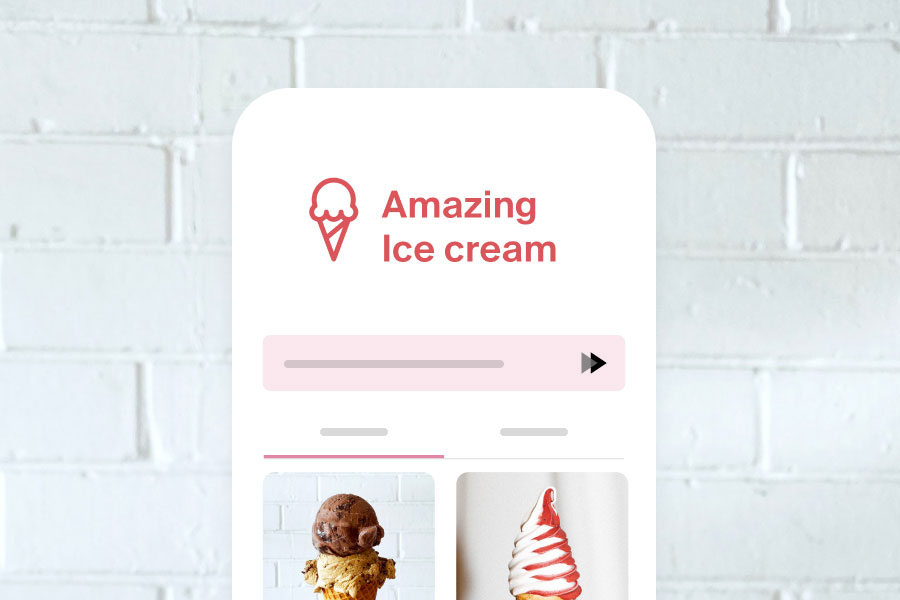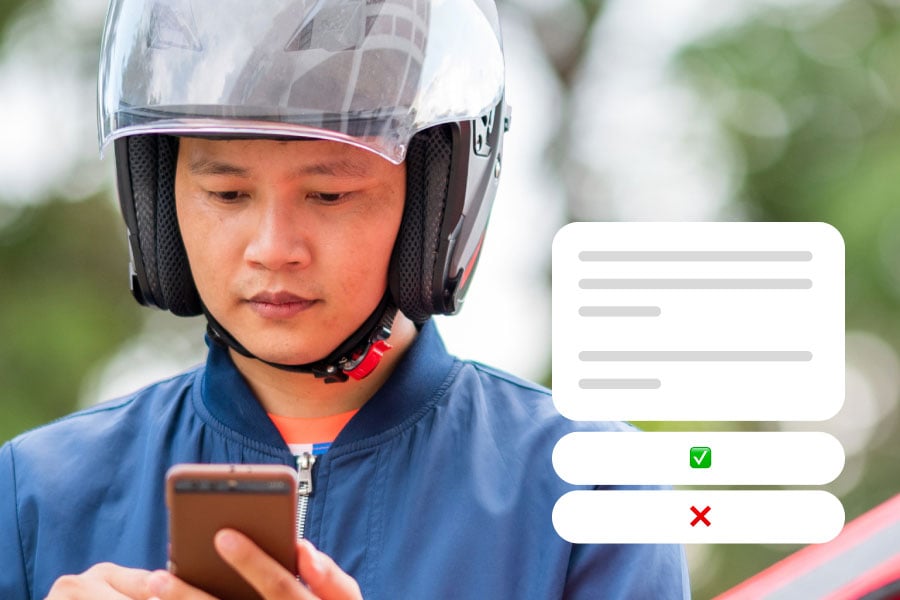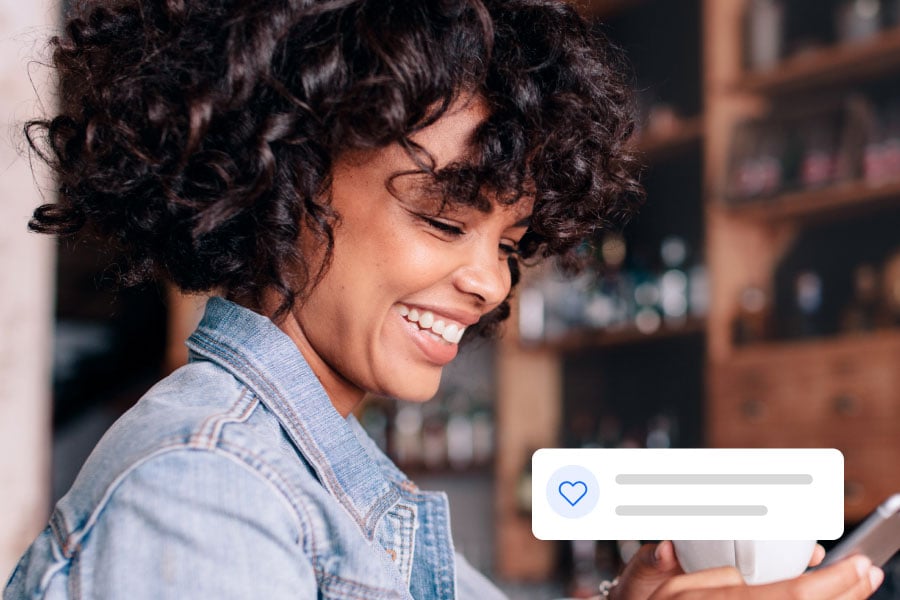By Hassan Hesham


Open your restaurant on social media, web and mobile. Dispatch and receive payments in multiple ways.

Receive customers on the phone. Transform their manual orders to digital in one place.

Manage multiple delivery fleets and dispatch faster without missing on any order.

Reach a wider base of new customers and turn them into loyal regulars.
Find new channels to offer your menu at your customers' convenience.
Reduce the operational hassle and automate your management.
Take data-informed decisions and boost your digital performance.
Build more brand awareness and increase your loyal customers.
Take back control of your online presence and generated profits.
Open your restaurant on social media, web and mobile. Dispatch and receive payments in multiple ways.
Receive customers on the phone. Transform their manual orders to digital in one place.
Manage multiple delivery fleets and dispatch faster without missing on any order.
Reach a wider base of new customers and turn them into loyal regulars.
Find new channels to offer your menu at your customers' convenience.
Reduce the operational hassle and automate your management.
Take data-informed decisions and boost your digital performance.
Build more brand awareness and increase your loyal customers.
Take back control of your online presence and generated profits.

A Guide to Effective Digital and Offline Strategies
Marketing your restaurant is crucial to reaching potential customers, promoting your food service concept, and keeping them returning for more. With the rise of digital technology, it's essential to focus your efforts on digital marketing strategies that can help you reach a large audience and establish an online presence. This guide will explore some of the most effective digital and offline marketing strategies you can use to market your restaurant.
Social Media Marketing:
Social media marketing is an essential component for promoting your restaurant and engaging with potential customers. With billions of users across platforms like Facebook, Instagram, and TikTok, having a strategic approach can significantly impact your brand's visibility and customer engagement. To begin, set clear objectives using the SMART criteria—Specific, Measurable, Achievable, Relevant, and Time-bound. Understanding your audience's demographics and psychographics is crucial for tailoring your content and choosing the right platforms. Facebook offers a broad reach, Instagram excels with visual storytelling, and TikTok engages younger audiences with short, creative videos. Ensuring your social media strategy aligns with your restaurant's goals helps drive traffic and increase customer loyalty.
Crafting engaging content is vital to capturing your audience's attention and keeping them returning. Develop a content calendar that mixes informative, entertaining, and promotional posts while maintaining a consistent brand voice. Utilize analytics tools to track performance and adjust your strategies based on what resonates with your audience. Keep an eye on competitors to understand industry trends and identify gaps you can fill with unique offerings. By combining these tactics, your restaurant can build a dynamic social media presence that enhances brand awareness and drives sales.
Social Media Ads:
Social media advertising is a powerful tool for reaching your target audience and promoting your restaurant. Platforms like Facebook and Instagram allow you to reach thousands of users by creating targeted ads based on location, demographics, and interests. With the right strategy, you can use social media ads to increase brand awareness, drive traffic to your website, and encourage customers to try your restaurant. Create a business account on Facebook and Instagram to get started with social media advertising. Once you've set up your accounts, you can start creating and running ads by selecting your target audience, budget, duration, and content. To see what resonates with your audience, you can also experiment with different ad formats, such as images or video ads.
Zyda helps your business with better targeting and tracking that will help you get better results. The integration with Meta will directly connect your website with your social media allowing you to track your customer's behavior using the Pixel.
Learn more about Facebook Pixel.
Influencer Marketing:
Influencer marketing is a great way to reach a new audience and increase brand awareness for your restaurant. By collaborating with influencers, you can tap into their engaged followers and promote your restaurant to a new audience. To get started with influencer marketing, research influencers in your industry with an audience that aligns with your target group. Consider reaching out to these influencers and offering them a free meal in exchange for a review or paying them for a piece of content they'll publish on their channels. Choosing influencers whose values and audience align with your brand is important when collaborating with influencers. This will help you reach the right people and ensure a successful collaboration. Additionally, be sure to track the results of your influencer marketing campaigns so you can measure their impact on your business.
Google My Business:
Google My Business is a free tool that allows you to manage your business information and appearance on Google. By claiming your Google My Business listing and keeping it up-to-date, you can help customers find your restaurant when they search for it online. To get started with Google My Business, sign up for a free account and complete your profile by adding information about your business, including your operating hours, photos, and online ordering website. By claiming your Google My Business listing, you'll also be able to respond to customer reviews, which can help you build trust with potential customers and improve your reputation. Additionally, you can use Google My Business to post updates about your restaurant and promotions, which can help drive more traffic to your website and increase sales.
Loyalty Programs:
Loyalty programs are a great way to reward your customers for their loyalty and encourage repeat orders. Whether you are in the process of launching a new restaurant or have been running one for some time, your top priority for long-term survival should always be to distinguish yourself from your competitors and attract repeat customers. It is important to first determine what type of loyalty program you want to implement. This could be a points-based program, a discount program, or a tiered program. You then need to choose a loyalty program provider (Here is a list of our favorite loyalty programs). You need to then start promoting your loyalty program across your different channels and keep an eye on the success of your loyalty program and make adjustments as needed.
Offline Marketing:
While digital marketing is important, it's equally important to use offline marketing strategies to reach customers and promote your restaurant. Utilizing your physical store and existing traffic is a great way to raise awareness for your restaurant and encourage customers to try your food. Some effective offline marketing strategies include distributing flyers and posters, mentioning your online ordering options on marketing materials and signage, and creating a QR code for customers to access your website directly. Using a combination of digital and offline marketing strategies, you can reach a wider audience and promote your restaurant to online and offline customers. Additionally, be sure to track the results of your offline marketing campaigns so you can measure their impact on your business.
Email and SMS marketing:
Email and SMSs are practical and inexpensive ways to help your business reach more customers and increase sales. Effective email marketing can announce important updates, new menu items, and promotions. SMS marketing operates similarly to email marketing, with a higher opening rate, but that comes at a higher cost. An email arrives with the advantage of customization and allows you to add videos, images, and other content to your messages.
You can benefit from Zyda’s CRM by using the available data to get your customer’s information and start an Email or SMS campaign. With the automatic segmentation of your customers, you can select a specific segment that you want to target and export their data to send them an email or send them an SMS using the SMS feature on your dashboard.
In conclusion, there are several ways to market your restaurant and reach potential customers, from social media advertising and influencer marketing to Google My Business and email/SMS marketing. By combining these strategies, you can reach a wider audience, increase brand awareness, and ultimately drive more sales for your restaurant.
Receive your orders on your own website with Zyda.
Contact us now to learn more about our product.